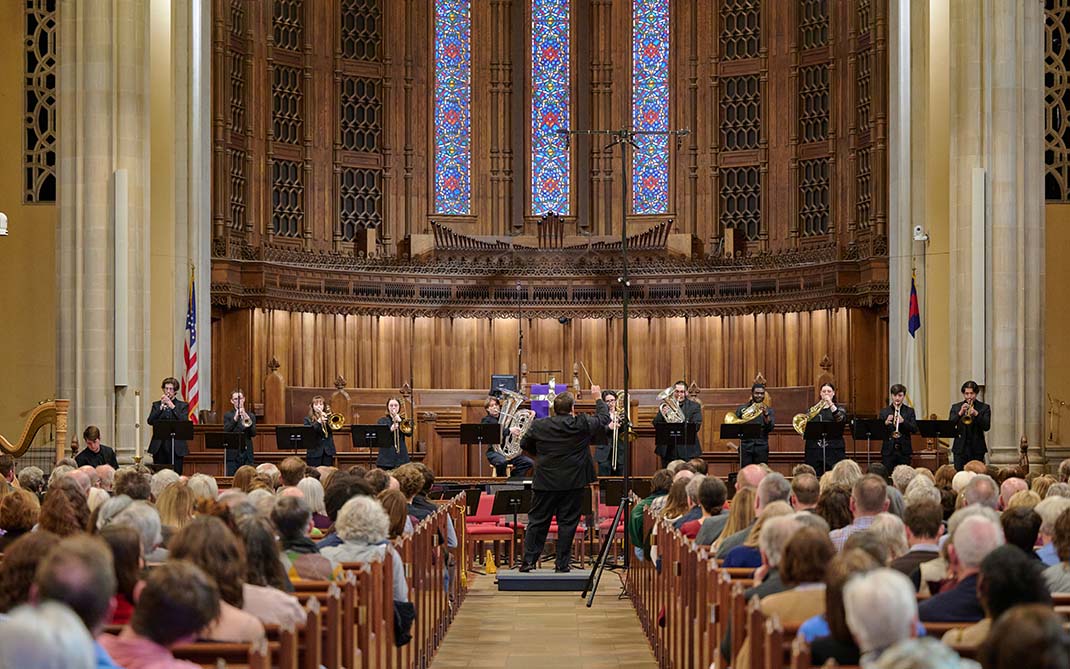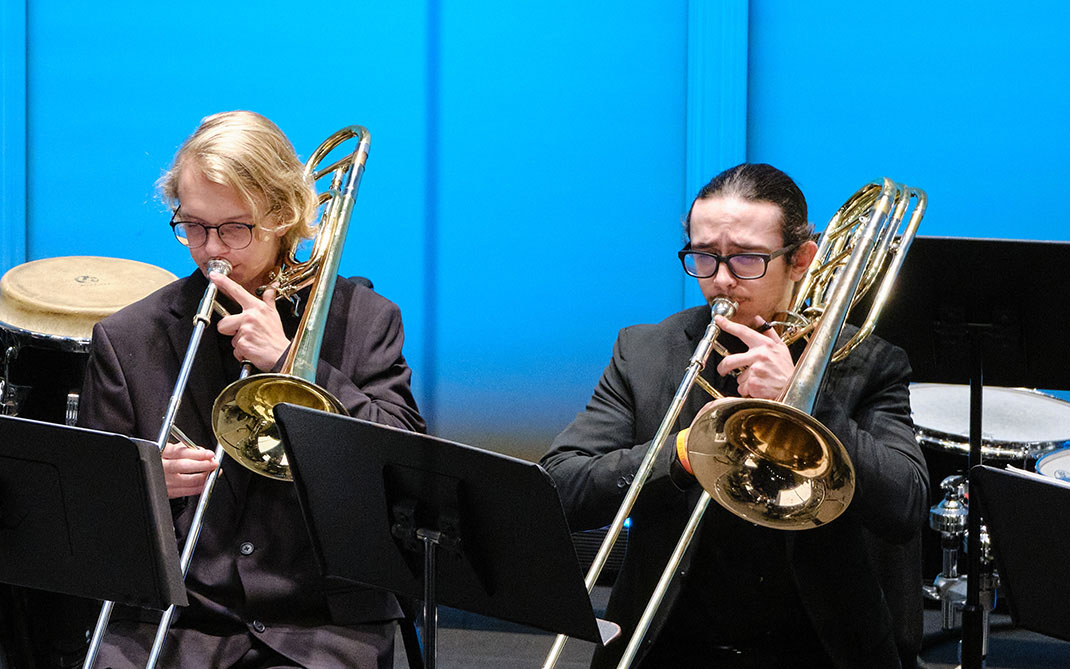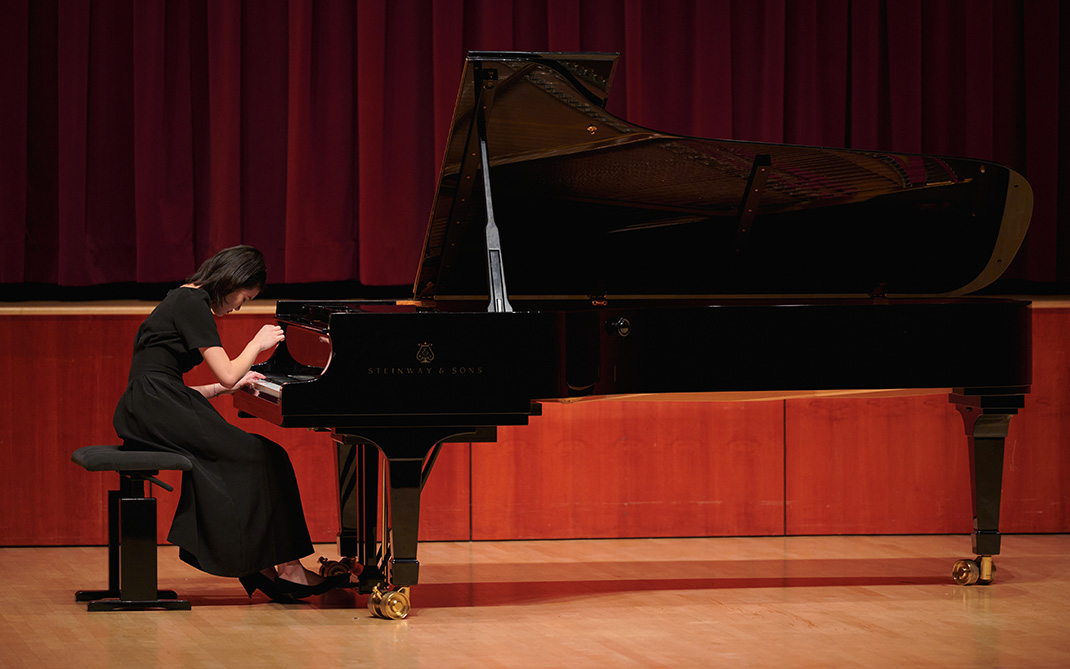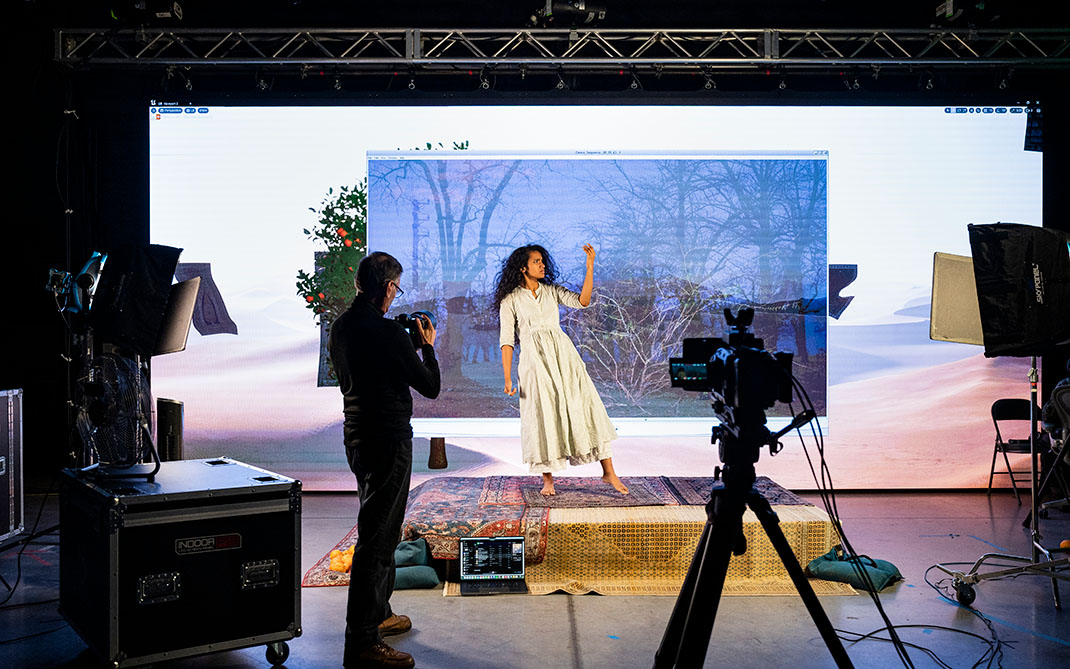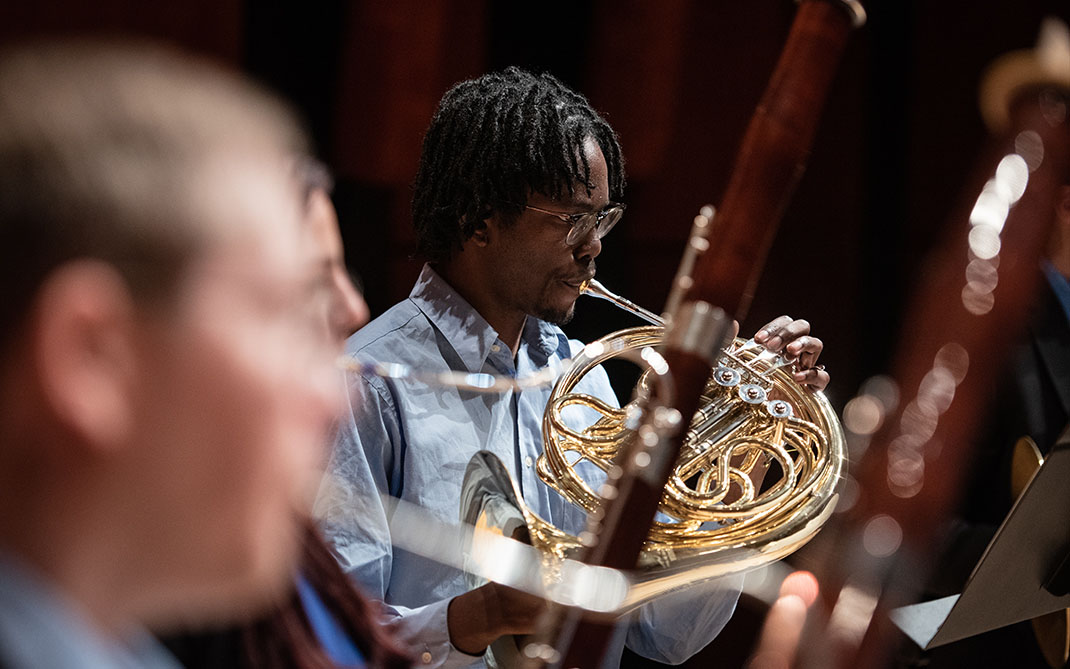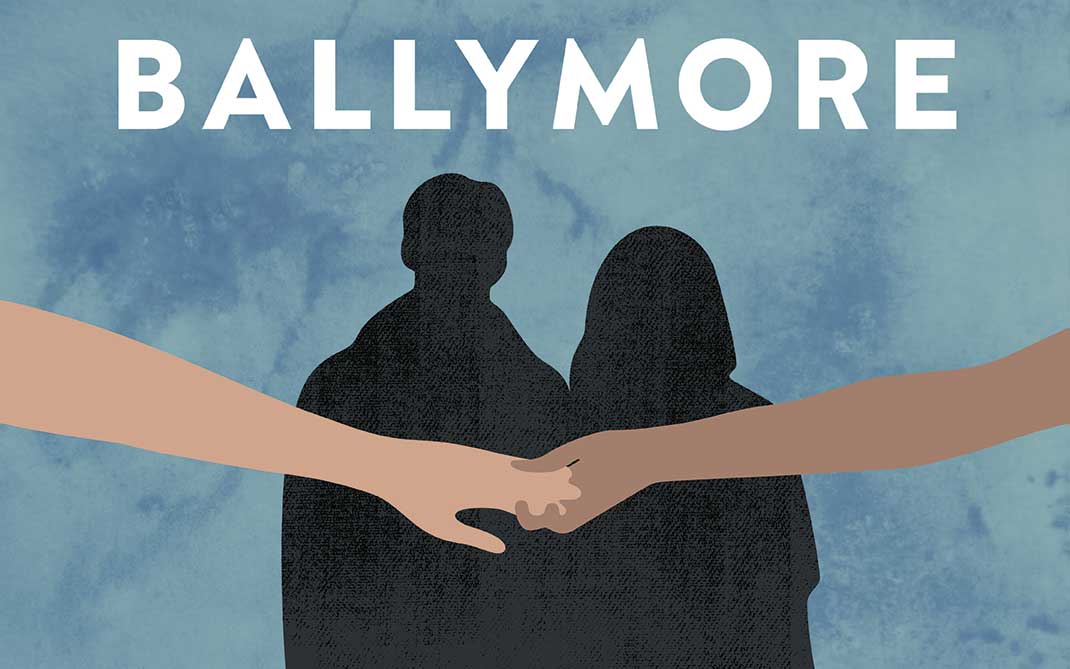Partnership Aims to Diversify Pipeline to Filmmaking Careers
A year ago, Destini Riley and Safiya Gallaghan had never heard of the UNCSA School of Filmmaking, even though the program ranks among the top in the nation. For the two teenagers from Durham, the esteemed film school — just a straight shot across Interstate 40 — might as well have been located on another continent.
Not anymore, thanks to a pilot partnership between the Thomas S. Kenan Institute for the Arts at the University of North Carolina School of the Arts and the Full Frame Documentary Film Festival in Durham.
Destini and Safiya, both 16, dream of becoming filmmakers one day. Last summer, they excelled at Full Frame’s School of Doc, a free summer program that teaches public high school students in Durham all aspects of documentary filmmaking. This summer, with support from the Kenan Institute, the teens traveled to Winston-Salem, where they spent five weeks living on campus and further exploring their passion at the UNCSA Summer Filmmaking Intensive.
“These are generally kids of need or kids who have not left Durham, so opportunities like this are absolutely invaluable,” says Deirdre Haj, Director of Full Frame.
“The School of the Arts has one of the best physical facilities for filmmaking that I know of, certainly in the Southeast. Every piece of making a film is available to you on that campus.”
Since 2012, the Kenan Institute has supported fellowships for UNCSA film students to attend Full Frame’s annual film festival in downtown Durham, where they participate in master classes and network with professional documentary filmmakers. This new pilot, part of the Institute’s Career Pathways Initiative to broaden opportunities for sustainable careers in the arts, takes that partnership to new heights. The goal: to provide Full Frame School of Doc students with the opportunity to explore UNCSA’s four-year film study degree program and, in turn, help diversify an industry historically dominated by white men.
“It’s an all-boys club, which is unnatural,” says Janos J. Kovacsi, director of the college-prep program. “I’m particularly proud that this summer we had a 50-50 female/male ratio. It’s never happened before.”
Kovacsi was impressed by Destini and Safiya, who quickly delved into the process of narrative filmmaking, from screenwriting and cinematography to directing, producing and editing. “They integrated themselves in the program on Day One,” he says.
Both teens enjoyed the collaborative nature of their work at Studio Village, UNCSA’s on-campus movie set, and the range of experiences they gained from the program.
“It’s given us a lot of hands-on experience,” Safiya notes. “We had two full weeks of production. We did individual shoots and worked on others’ sets doing every little job, which is cool.”
“So you get experience not just in cinematography or directing,” Destini adds, “you get to be a boom operator, a sound mixer and an editor.”
Their experiences at UNCSA may prove instrumental in the future. Both teens are now looking at film schools to attend after graduation from high school next year.
“I’ve never been in a place like this — it makes me excited for college,” Safiya says. “In the end, I want to go to California because I want to make movies in LA.”
Destini is investigating film schools closer to home. “I really want to do animation and work with Pixar and Dreamworks,” she says. “This (UNCSA) is one of the two animation programs on the East Coast that they will hire from.”
Destini already has one film to her credit, an animated documentary short she co-wrote with filmmaker Nicholas Pilarski when he was a graduate student and studied at The Center for Documentary Studies at Duke University. In the autobiographical “I, Destini,” she grapples with the effects of her brother’s incarceration and explores issues of race, class, media and policing in Durham. The film has garnered awards and recognition at Aspen Shortsfest, Indie Grits, Palm Springs International ShortFest, and was nominated for the 59th CINE Awards in the Short Documentary category.
Both Destini and Safiya say they never could have come to UNCSA’s summer program had it not been for the partnership between the Kenan Institute and Full Frame.
And Deirdre Haj is quick to credit the partnership to the vision of Corey Madden, the Kenan Institute’s Executive Director.
“We are grateful that Corey came in with a very clear vision,” Haj says. “She described it as a circle — broaden the pipeline, build the professionals, then bring the professionals back — and we are just at the beginning of the circle. This is the very first play in a very long game and we are thrilled to be a part of this.”
July 29, 2016
